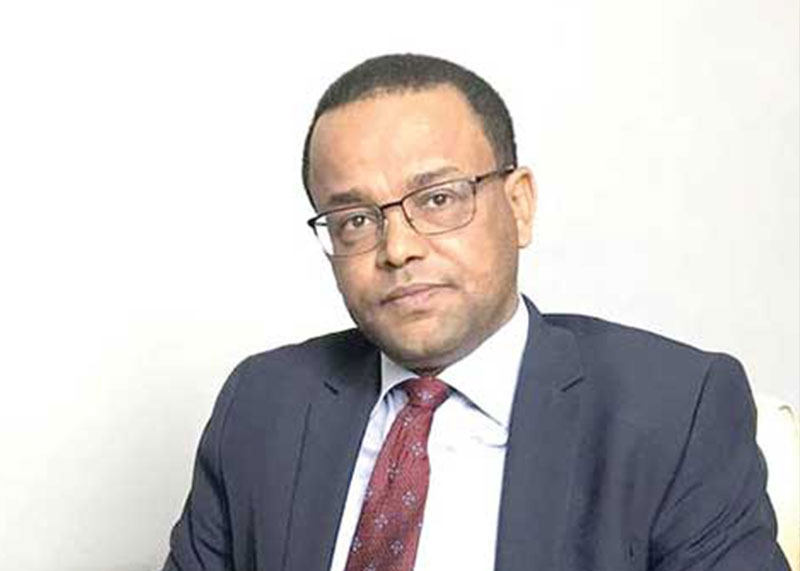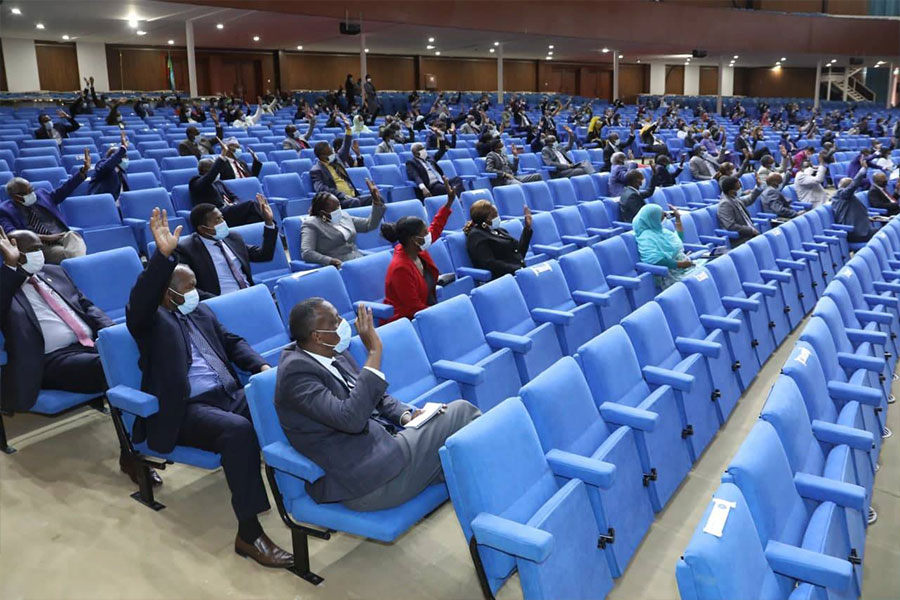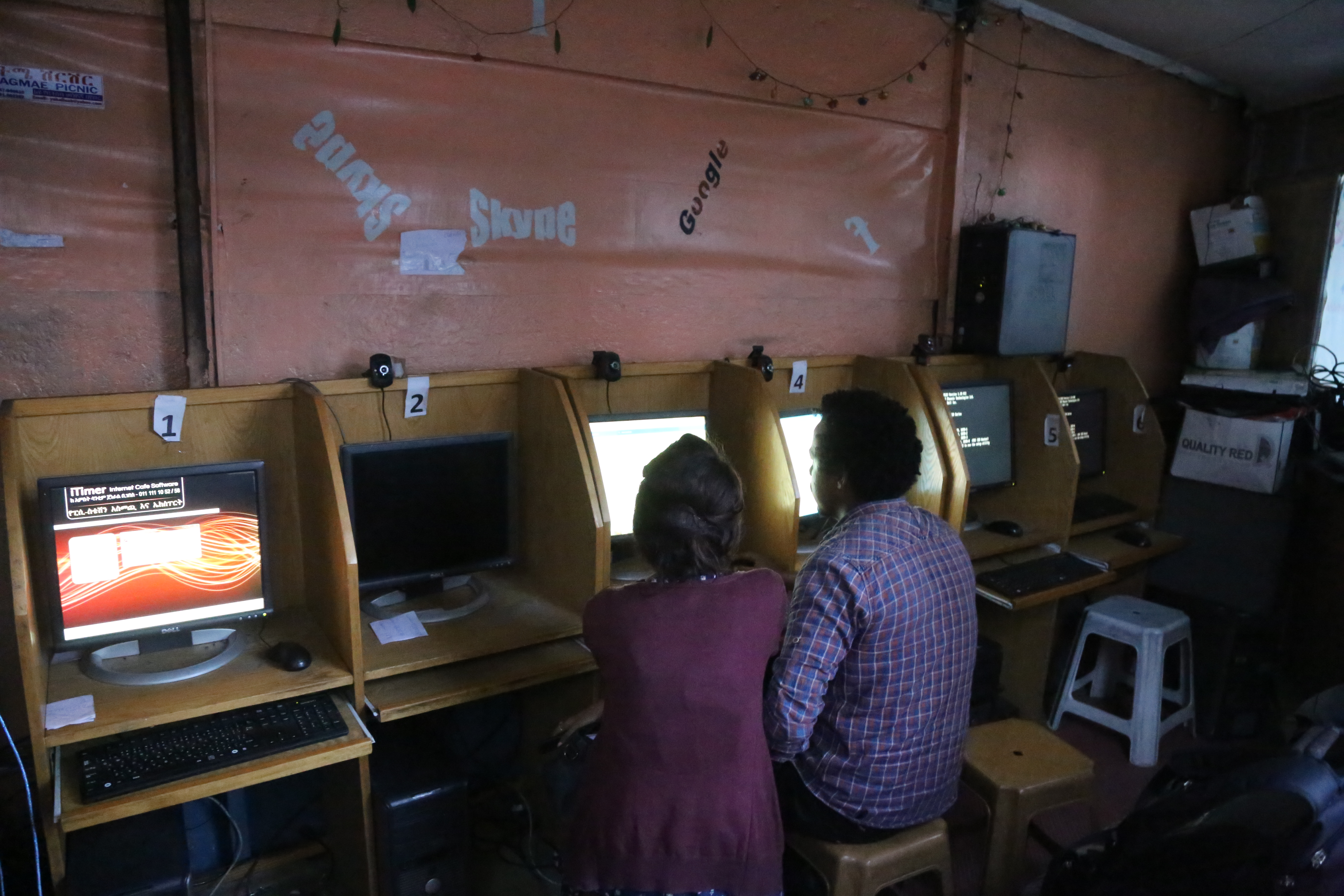
Non-financial institutions, including Ethio telecom, will soon be able to engage in mobile money services if the central bank approves an amended directive.
The 20-page bill, which has been in the making over the past year, proposes allowing non-financial institutions to engage with electronic payment and money transfer services, which were prviously only reserved for banks and micro-financial institutions. The directive also opens doors of investment for private commercial companies and government institutions to operate as Payment Instrument Issuers.
In drafting the directive, the National Bank of Ethiopia, which has been rolling out a couple of reforms in the financial industry over the past year and a half, aims at improving financial inclusion for a more significant proportion of society, which is currently outside the reach of financial services.
Partnering with banks, insurance companies, micro-finance institutions and social security agencies, Payment Instrument Issuers would be allowed to give savings and credit services, sell insurance products and pay out pensions, according to the new directive.
"Innovative payment instruments are important to increase the use of financial services," reads the draft directive, "thus the inclusion of Payment Instrument Issuers is key to mitigate associated risks and maintain the reliability of payment instruments."
In Ethiopia, a country with a population above 100 million, only 20pc of the population is banked. The population living in rural areas are largely unbanked.
While mobile money is at the infant stage in the country, neighbouring Kenya has gone far in the service. M-PESA, the well-known mobile banking brand with over 17 million Kenyans as customers, allows Kenyans to even pay for taxis using the system.
"Since Ethio telecom already has a large number of subscribers," said Cherer Aklilu, executive director at Ethio telecom, "it will play a significant role in improving financial inclusion by allowing our clients to use the service."
As of the end of the last fiscal year, Ethio telecom has 41.9 million mobile voice subscribers and 22.3 million data and internet users.
The company, which is going to be partially privatised in the next few years, plans to provide the service through a dedicated unit that will be a subsidiary of the parent company, according to Cherer.
Mobile banking was introduced in Ethiopia along with agent banking seven years ago, and currently about half of the commercial banks provide the service.
In bringing many operators onboard, the directive, drafted by the central bank following a request from Ethio telecom, allows share companies to venture into the service. Registered business companies that are wholly owned by Ethiopians and non-nationals with Ethiopian origin can apply for a license from the central bank.
The directive requires companies to have a minimum capital of 50 million Br to apply for a mobile money service license. The majority shareholder of these companies should not hold more than five percent of the total capital, according to the draft directive.
"To ensure maximum protection on electronic transactions," reads the directive, "payment instrument issuers shall apply two-factor authentication for transaction amounts greater than 1,000 Br."
The draft directive allows three levels of transactions. Under the first level, the maximum permitted account balance is 3,000 Br, with an aggregate daily and monthly transaction limit of 300 Br 6,000 Br, respectively.
In the second level accounts, the maximum account balance allowed is 15,000 Br. The aggregate daily transaction limit is 2,000 Br, while the total monthly transaction limit stands at 25,000 Br. The maximum account balance in the third level is 25,000 Br, while daily and monthly transaction limits stand at 5,000 Br and 50,000 Br, respectively.
Even though it is late, the directive is an excellent move by the central bank, according to a financial expert with decades of experience in the banking industry, who pointed out the successful experience of Kenya with mobile money.
The expert adds that the only way to achieve financial inclusion and going to a cashless society is with innovative approaches and not sticking with old and conventional methods.
"Yet, in a bid to attract many users," said the expert, "the central bank still needs to relax the restrictions on daily and monthly transactions as well as limits on the account balance."
PUBLISHED ON
Sep 21,2019 [ VOL
20 , NO
1012]

Radar | Apr 20,2019

Fortune News | Jan 13,2024

Radar | Feb 24,2024

Radar | Jun 12,2021

Radar | Jun 12,2021

Agenda | Jun 12,2021

Agenda | Nov 27,2018

Fortune News | Jun 11,2022

Radar |

Fortune News | Jul 03,2021

Dec 22 , 2024 . By TIZITA SHEWAFERAW
Charged with transforming colossal state-owned enterprises into modern and competitiv...

Aug 18 , 2024 . By AKSAH ITALO
Although predictable Yonas Zerihun's job in the ride-hailing service is not immune to...

Jul 28 , 2024 . By TIZITA SHEWAFERAW
Unhabitual, perhaps too many, Samuel Gebreyohannes, 38, used to occasionally enjoy a couple of beers at breakfast. However, he recently swit...

Jul 13 , 2024 . By AKSAH ITALO
Investors who rely on tractors, trucks, and field vehicles for commuting, transporting commodities, and f...

Jul 12 , 2025
Political leaders and their policy advisors often promise great leaps forward, yet th...

Jul 5 , 2025
Six years ago, Ethiopia was the darling of international liberal commentators. A year...

Jun 28 , 2025
Meseret Damtie, the assertive auditor general, has never been shy about naming names...

Jun 21 , 2025
A well-worn adage says, “Budget is not destiny, but it is direction.” Examining t...